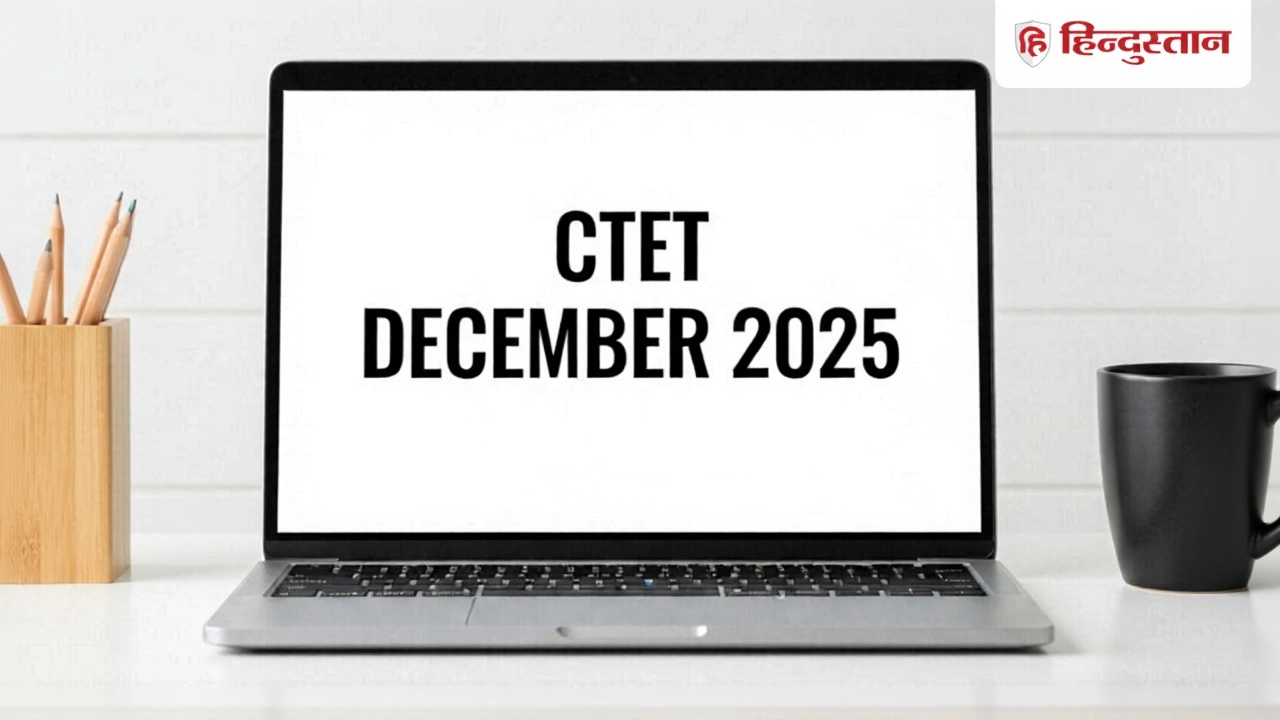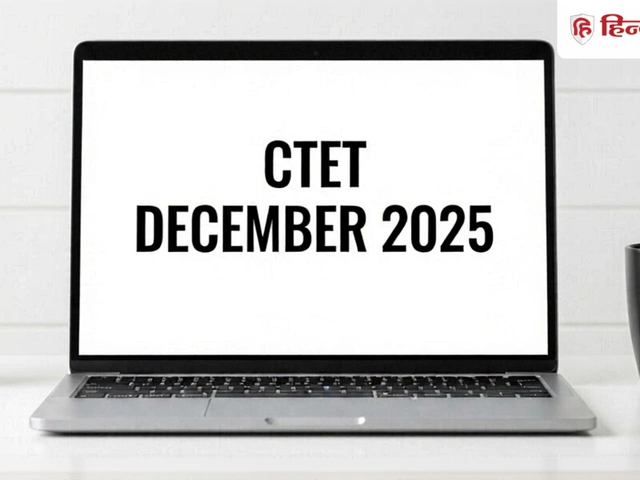The Central Board of Secondary Education has quietly shifted the entire teacher recruitment calendar in India, confirming the next CTET exam will be held on February 8, 2026, not in July as it has been for over a decade. The announcement, quietly posted on the official ctet.nic.in website, features banners for 'CTET FEB 2026' and 'INFORMATION BULLETIN CTET Feb-2026' — a clear signal that the traditional July cycle is gone. No press release. No media briefing. Just a silent update on the portal maintained by the Central Board of Secondary Education in New Delhi. And now, thousands of aspiring teachers across the country are scrambling to adjust their plans.
Why the Sudden Change?
For years, the CTET exam ran like clockwork: notifications in March, exams in July, results by August. Then December. Rinse and repeat. But this year? Nothing. The July 2025 session vanished without explanation. Officials at the Central Board of Secondary Education have cited only "preparatory steps" — a vague phrase that’s left candidates wondering: Is it curriculum reform? A technical overhaul? A shift to digital testing? The truth remains hidden.
What we do know: the CTET exam is moving to February. And the notification — the official PDF with application dates, eligibility rules, and syllabus — won’t arrive until November or December 2025, according to multiple education portals including Testbook.com and Jagran Josh. That’s a four-month delay from the usual March release. For candidates who’ve been studying since January, it’s a gut punch. For those waiting to start, it’s a lifeline.
What the Exam Still Looks Like
Despite the schedule chaos, the structure remains unchanged. Two papers. No negative marking. Paper I for primary teachers (Classes 1–5), Paper II for elementary (Classes 6–8). Each has 150 multiple-choice questions. Each lasts 2 hours 30 minutes. The format? Still OMR sheets. Still paper-based. Still conducted in English and Hindi.
And here’s the silver lining: CTET certificates are now valid for life. No more five-year expiration dates. That’s a major win for candidates who may take years to land a teaching job. You pass once, you’re qualified forever — assuming the rules stay put.
There’s no cap on attempts either. You can take the exam five times. Ten times. Fifteen. As many as you want. No minimum eligibility age. No limit on how often you can reapply. That’s unusual for a national-level test — and it’s a signal that the Central Board of Secondary Education is trying to widen the pool of qualified teachers, not gatekeep them.
Who’s Affected Most?
It’s not just fresh graduates. It’s the thousands of contract teachers working in private schools who need CTET certification to get permanent positions. It’s rural candidates who travel hours to exam centers and can’t afford to miss a window. It’s parents who’ve saved for years to fund coaching classes, now facing another six months of uncertainty.
"I’ve been preparing since April," said Priya Mehta, a 24-year-old from Patna who’s been tutoring children while studying for CTET. "I had my July 2025 exam date circled on the calendar. Now I’m stuck. Should I keep studying? Take a break? Reapply next year? No one’s telling us. That’s the worst part."
Meanwhile, coaching centers are already adjusting. Shiksha.com reports many have shifted their CTET batches from "July 2025" to "February 2026" in their brochures. Some are offering free mock tests in December to help candidates adapt. Others? Still running ads for a July exam that won’t happen.

What’s Next? The Timeline
Here’s what we can reasonably expect:
- November–December 2025: Notification released on ctet.nic.in
- December 2025–January 2026: Application window opens
- January 2026: Admit cards uploaded (no physical copies sent)
- February 8, 2026: Exam day — likely two shifts (Paper II in morning, Paper I in afternoon, as in past cycles)
- March 2026: Results expected
Don’t expect an official press conference. Don’t wait for an email. The only source that matters? The ctet.nic.in website. Bookmark it. Refresh it daily. That’s where the truth lives now.
Historical Context: Why This Matters
The Central Board of Secondary Education was established in 1929. Since 2011, it’s been the sole body conducting CTET — a mandatory qualification for teaching in central government schools and many state schools. The biannual schedule was designed to match the academic calendar. But with teacher shortages growing and digital infrastructure improving, the shift to a single annual exam may be a long-term strategy. February gives time for results to be processed before the new academic year begins in April. It also avoids clashing with state-level teacher recruitment exams, which often happen in June and July.
Still, the lack of transparency is troubling. In 2024, the CTET was held in July. In 2023, it was in July. In 2022? July. Now? February. No warning. No consultation. Just a changed date on a website. That’s not just inconvenient — it’s destabilizing for a profession that relies on predictability.
Frequently Asked Questions
Will the CTET 2026 exam be online or offline?
The CTET exam for February 2026 will remain offline, using OMR answer sheets. Despite rumors of a digital transition, the Central Board of Secondary Education has not announced any change in format. Candidates must fill in bubbles with a black or blue ballpoint pen. Admit cards and results will be available only online at ctet.nic.in.
Can I apply for both Paper I and Paper II in February 2026?
Yes. Candidates can apply for both papers in the same session. The application form allows selection of one or both. The fee increases slightly for dual applications — ₹1,200 for one paper, ₹1,800 for both. Many aspirants choose this route to maximize job opportunities, especially if they’re targeting schools that hire for both primary and elementary levels.
Is the CTET certificate valid in all Indian states?
The CTET certificate is recognized by all central government schools (KVS, NVS, etc.) and many state boards. However, some states like Delhi, Maharashtra, and Uttar Pradesh conduct their own teacher eligibility tests and may require additional exams. Always check your state’s recruitment policy — but nationally, CTET remains the gold standard for teaching eligibility.
What happens if I miss the November–December notification window?
If you miss the notification, you’ll miss the application window. The Central Board of Secondary Education does not extend deadlines. Applications open for only 3–4 weeks. Late submissions are not accepted. Set calendar reminders for November 1 and check ctet.nic.in daily from mid-November. No SMS alerts. No emails. No notifications — only the website.
Will the syllabus change for the February 2026 exam?
There’s no indication the syllabus will change. It will likely follow the same structure as the 2024 exam: Child Development & Pedagogy, Language I & II, Mathematics & Environmental Studies (Paper I), and Social Studies/Science (Paper II). But until the official information bulletin is published, assume nothing. Past candidates have reported minor weightage shifts — always verify with the PDF once released.
Why did CBSE delay the July 2025 exam without notice?
The Central Board of Secondary Education has not publicly explained the delay. Speculation includes alignment with the National Education Policy 2020, integration of new teacher training modules, or technical upgrades to the examination portal. But without official communication, candidates are left in limbo — a pattern that’s eroded trust in the process. Transparency is the missing ingredient.


